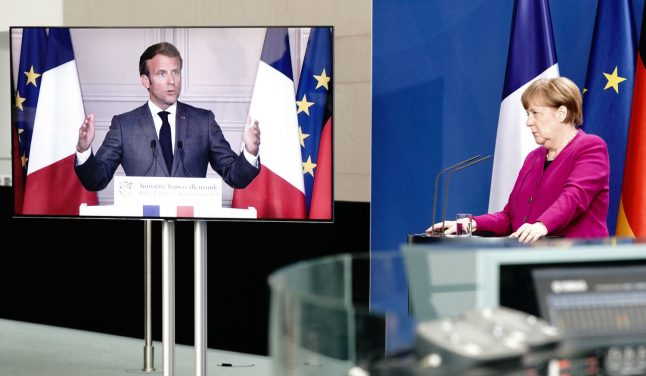Berlin's chairing of the 27-member bloc will be its last with Merkel in charge, and could be the one that defines the legacy of the leader dubbed the “eternal chancellor”.
With the future of the bloc's relationship with Britain still to be determined, a crucial shift to a lower carbon world in the balance and crises from Libya to Syria all jostling for attention, there is no shortage of burning issues to tackle.
But it is the COVID-19 pandemic and the economic devastation it has wrought which will dominate and concentrate minds.
“This crisis that we're currently experiencing is different compared to any other we have experienced since the founding of Europe,” Merkel, in power since 2005, told parliament in an address laying out Berlin's priorities for the EU presidency.
“Alone in Europe, it has claimed more than 100,000 lives. A few weeks of economic standstill was enough to endanger what we have built up over years.”
READ ALSO: Merkel wins surprise backing from Germany over EU aid U-turn
With all to play for, member states are anxiously looking to Europe's biggest economy to take charge.
In an interview published Saturday, European Commission chief Ursula von der Leyen said it was “very fortunate that Germany is taking over the presidency at this time of a major crisis.”
Merkel's long experience and credibility “helps enormously,” she told the Handelsblatt newspaper.
German 'bulldozer'
Besides its geopolitical weight and economic heft, Germany takes on custodianship of the bloc with a strong hand as it has so far withstood the health emergency better than most other member states.
Compared to the debt crisis that threatened to sink the single currency zone in 2009-2010, Germany looks very different today — it's out with Scrooge and in with Lady Bountiful.
Once an obstinate champion of budgetary rigour, Merkel's government has ditched its no-new-debt dogma to throw resources at the crisis.
Its programme to shore up the economy totals more than a trillion euros in spending, loans and guarantees.
Together with Macron, Merkel sketched out the backbone of the €750 million fund proposed by von der Leyen to bolster the bloc's economy.
The fund would offer grants — with no repayment obligation — to countries hardest hit by the pandemic, a major policy U-turn for Berlin.
With an eye on the devastating blow taken by the worst-hit countries like Spain or Italy, Merkel explained that it was “imperative that Germany not only thinks of itself but is prepared for an extraordinary act of solidarity”.
“In such a crisis, everyone is expected to do what is necessary. And what is necessary in this case is rather extraordinary,” she told the Sueddeutsche Zeitung newspaper.
“Of course it's good that things are moving forward finally. But it's regrettable that without a jolt from crisis, this chancellor has usually lacked the drive to make changes,” complained weekly Der Spiegel of veteran firefighter Merkel — set to retire after elections late this year.
The recovery fund is likely to be among the key points raised when Merkel and Macron meet at German government retreat Meseberg on Monday.
Despite opposition from fiscal hardliners such as Austria and the Netherlands, observers believe that the EU's paymaster Berlin will ram through an accord.
“When the Germans are certain they are right, it's very bulldozer, there is no margin for discussion,” a high-ranking EU official said.
'Swan song'
An EU diplomat agreed, saying: “On the recovery fund, I expect Germany to dictate the whole process. Merkel is holding all the cards and (EU Council chief) Charles Michel will follow that.
“She also wants to get Brexit out of the way and she will always go for the deal as she wants to keep the West together. The third leg will be restoring ties with US after the election there.”
READ ALSO: Europe's Franco-German 'motor' sputters back to life
Merkel, who has ruled out running for a fifth term next year, won't have much time.
Brexit talks will have to be done by the end of the year, while in November, the focus will be on whether US President Donald Trump, whose relationship with Merkel has been frosty at best, manages to hold on to his job.
What is clear is that Merkel's fingerprints will be all over the EU's roadmap through the next six months.
“This will be a very Merkel presidency, her swan song,” said the EU diplomat, adding that she would be using it “to craft her legacy”.



 Please whitelist us to continue reading.
Please whitelist us to continue reading.
Member comments